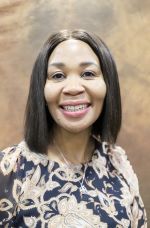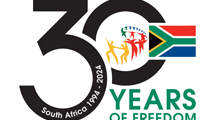 By Regomoditswe Mavimbela
By Regomoditswe Mavimbela
As we reflect over our 30 Years of Freedom, one of the many cherished freedoms we have is the freedom to speak without fear. This freedom of expression includes the freedom of the press and other media as well as the freedom to receive or impart information or ideas.
Since the dawn of democracy, all South Africans are able to express their political views, practice their religious and cultural freedoms, and generally go about their lives unhindered.
Given that this freedom is now the norm, it is something we take for granted as we go about our daily lives. However, these freedoms were born out of great struggle and are protected by our Bill of Rights and Constitution.
The freedom of expression is an important feature of our democracy especially since the apartheid censorship laws made public utterances against the then ruling government forbidden and punishable by law.
Books, articles, speeches, songs etc., that were viewed as offensive by the apartheid government, were greatly restricted or banned under the guise of apartheid censorship laws.
The restriction of communication on citizens and control of information flow was used as a political weapon by the apartheid government to stifle the public from freely questioning the unjust laws that oppressed our nation and divided humanity.
Through our liberation struggle, a new weapon has emerged in the form of our people’s voices and an active citizenry that hold government to account and is reflective of our democratic dispensation.
Not only are citizens able to freely associate and engage with each other and discuss issues that face our communities and wider society, but we can also freely engage with our government.
The opportunity for citizens to engage government officials are through Izimbizo which are gatherings between representatives of all three spheres of the elected government and community members, for the purpose of discussing social issues and the way forward.
The Izimbizo, headed by the President and the Minister of Corporate Governance, have now been held in all nine provinces and allows citizens to voice their concerns directly to government officials, who in turn hear the matters raised and provide citizens with information that empowers them.
The Izimbizo is also a structure, which enables local municipalities through ward councillors to hear the voices of citizens and address their concerns for service delivery.
Through these engagements government and citizens can work together and find solutions that will move our democracy and nation forward. It also promotes active citizenry as citizens participate in government programmes.
The Izimbizo is one of many platforms that offer the opportunity for ordinary citizens to have their voices heard. Another avenue through which individuals have their say is often through social media.
Government’s social media suite includes Facebook pages, YouTube Channels, Twitter, Instagram and Tik Tok that allow people to freely engage with government by commenting on the posts and sharing their views.
However, it is deeply troubling when social media is misused or abused by individuals who take advantage of our freedom to cause harm such as hate speech, fake news or even inciting violence.
As much as we all enjoy our freedom in many ways, it should not disregard the rights of others or cause harm to others in any way. This is affirmed by the South African Human Rights Commission (SAHRC) which stated that “South Africans have the freedom to say, write or print what they want, but this right must never violate anyone else’s right or break the law in any way”.
Therefore, every citizen needs to take responsibility and accountability for their actions and the things they say and do online to ensure that their freedoms do not infringe on the rights of others.
As we exercise our rights to freedom, information, access and equality, let us also practice the responsibilities that accompany it. Playing our part as responsible citizens will drive our democracy forward and ensure that no one is left behind.
Regomoditswe Mavimbela is Deputy Director-General: Content Processing and Dissemination at GCIS





